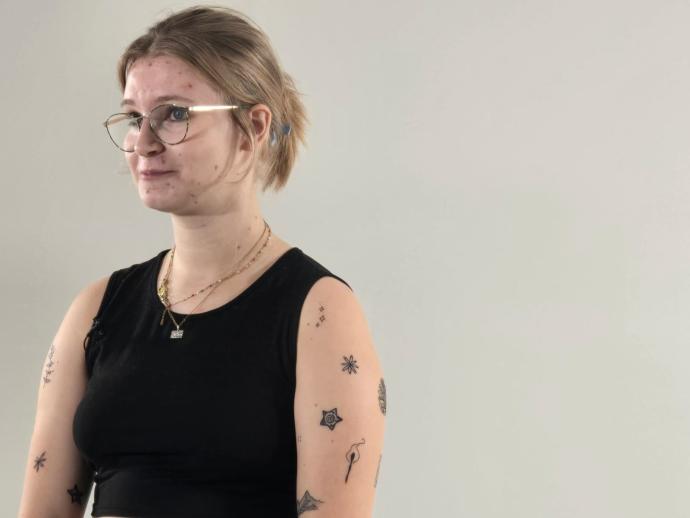This is Emma's Story.
Emma Prach, trustee at Endometriosis UK reflects on experiencing endometriosis symptoms as a teenager.
I was around 12, when I started getting a range of symptoms such as debilitating pain and bloating. And I remember thinking I was being dramatic about it. Just not really understanding what was going on with my body.
My Mum was always a big advocate for me, she knew my symptoms were not normal and took me to see a GP at the first opportunity. But I was missing so much time that it was just a kind of routine thing that happened every month.
I couldn't be at school when I was on my period. I usually missed about two days every month for my whole school career, which was 168 days in total. That's just 12 days short of an entire academic year.
I always got the line from PE teachers that exercise would make me feel better, which it absolutely doesn't. I know that is something that works for some people, but I literally cannot do anything when I am on my period. I remember that if it ever came during the school day, I had a feeling of impending doom. I had difficulty concentrating at school if I was there during a period, though usually I would just have to go straight home as I normally throw up from the pain.
I had searched my symptoms online, like why are my period pains so bad, and I eventually came across endometriosis. I remember not knowing how to say it and mentioning it the first time that I saw a GP. But it was never something that was ever really taken into consideration until a lot later on because I was so young.
Now there does seem to be greater awareness about endometriosis, but when I was school age, I felt like I was battling something that no one really knew about, and I myself didn't really know. It really affected my self-esteem, thinking that I was being dramatic about it or that is actually wasn't really that bad. I was in so much pain, but there didn’t seem to be anything anyone could really do about it.
I think representation would have really helped at school, because I did not see anybody else my age going through the things I was going through at the time. So, it was difficult to work out if endometriosis could be what was going on. It would have really helped to see or hear about other young people living with the condition. Now it is getting a lot more exposure in the media and online.
If I had to give a piece of advice to a 12-year-old me, it would be that you're not making it up and that the pain is very much as bad as it feels. You do not need to keep gaslighting yourself. It's okay to lean on people for help.
I think people should get behind the Big Give campaign because by supporting an organisation like Endometriosis UK you're helping to create hope.
As Emma shares, representation and awareness matters. When you donate via our Big Give campaign, you are contributing to our work to raise awareness of endometriosis among young people and in wider society.
Your donation could help us provide schools, colleges and universities with talks and resources to ensure every young person understands the symptoms of menstrual health conditions, including endometriosis, and how to seek help. Donations also go towards our campaigning efforts to advocate for mandatory education of healthcare practitioners, so that everyone with endometriosis symptoms receives the care they need, when they need it.


